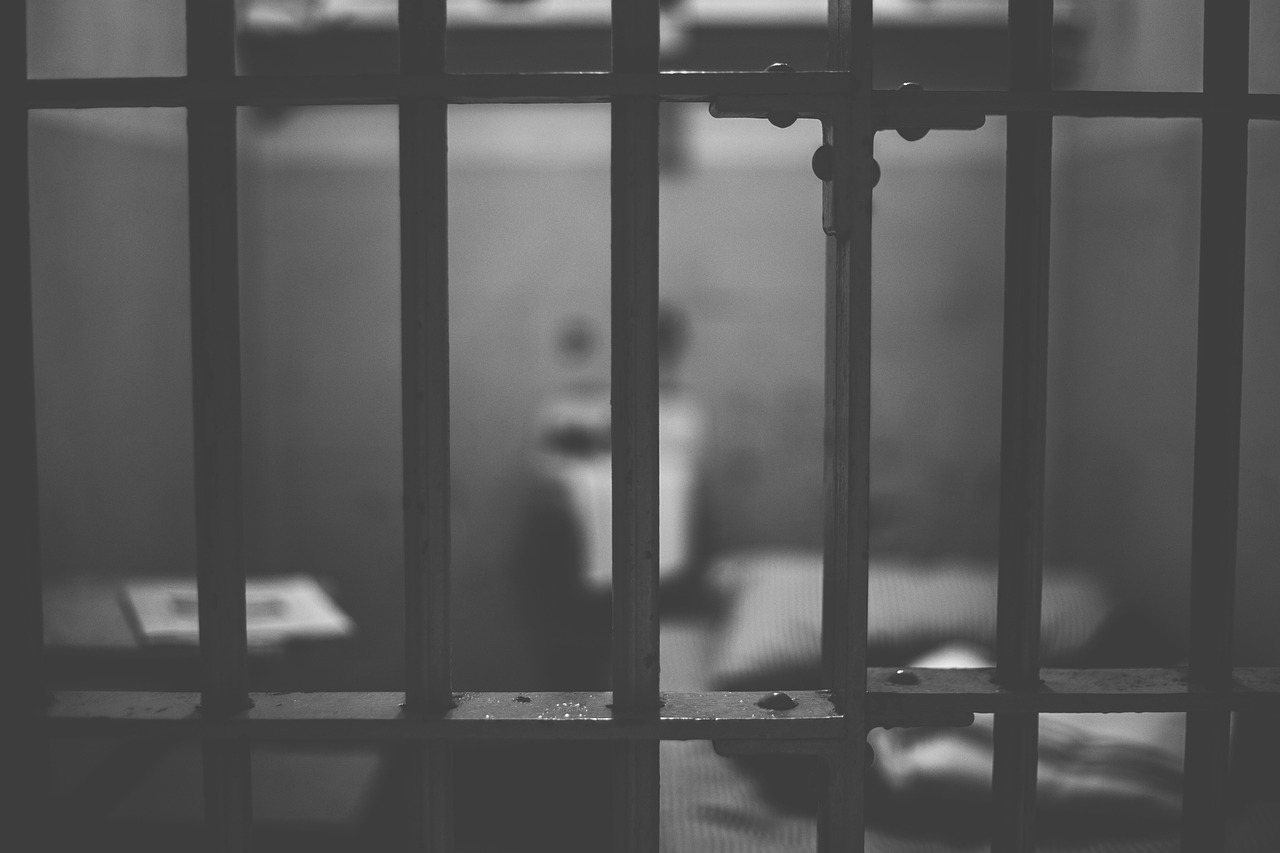On a rainy night last June, police officers in Mombasa arrested a young trans woman and allegedly refused to let her go until she’d paid them a $50 bribe.
Brian, in her late 20s, told CNN that the police held her in their custody for “being drunk and disorderly” when she was leaving a queer-friendly club in Kenya’s second most populous city.
But “I wasn’t drunk at all; neither was I disorderly,” Brian told CNN, saying the arrest was a ruse. Her real name, and those of all the other trans and intersex people in this story, have been withheld to protect their identities either because they are not publicly out or because they fear reprisal from the people and institutions they accuse of demanding bribes. She chose a traditionally male name as a pseudonym, telling CNN that it’s safer to navigate Kenyan society with one.
Brian said that on the night of June 14, as she and five other trans friends were leaving the club, they saw a police van parked just a few meters away. Brian said she heard a police officer say, “These are gays” as he moved toward them, so she and her friends ran. “My friends managed to escape, but since I was wearing a tight black dress and high heels, I slid and fell,” Brian said. Three of the five friends who were with her that night gave the same account. CNN couldn’t reach the other two.
The three police officers on duty at the time of her arrest confirmed that they had arrested Brian, but denied commenting on her sexual orientation. “She was drunk and disorderly,” one of them told CNN.
“What do you have?’’ Brian remembered an officer asking her after he caught her. “Look for 5,000 [Kenyan] shillings (about $30) and let’s finish this issue here.” But Brian didn’t have enough cash with her. So, as she told CNN, the officer took her to the police station where all night “the police kept demanding the bribe, which I was forced to eventually arrange to secure my release.” She said she was allowed to call her friends to ask for the money. Her brother brought it to the station the next morning and Brian was released, she said. The brother provided the same details to CNN.
The amount, Brian said, was a bribe and not some kind of fine because it was not recorded anywhere, neither was a receipt issued by the officers after receiving the money. “They just put it in their pocket,” she said. The police, however, told CNN that it was a “fine,” but the person in charge of record-keeping failed to record it.
Brian said that, in her experience, the majority of such arrests happen when gender nonconforming people are on foot. That is why they prefer travelling in private taxis, if they can afford to do so.
The Mombasa County police commander said he is not aware of any police officers in Mombasa soliciting bribes, saying no complaints have been made.
Brian and 25 other trans and intersex people interviewed by CNN, in both Mombasa and the Kenyan capital Nairobi, said this kind of police harassment is common for them, something that they have accepted as the price they have to pay for their freedom and privacy in a country with widespread anti-LGBTQ+ sentiments.
“Any time I go out to party or for meetings, I must have a budget for bribing police officers, because you never know when they will show up,” Brian said. “Some of us who don’t have money to bribe often stay indoors or meet at friends’ places.”
Rise in violence after some politicians and Church leaders made anti-LGBTQIA+ comments, advocates say
Bribery is just one the many abuses the National Gay and Lesbian Human Rights Commission, a nonprofit based in Nairobi, said it recorded in 2020-2021. Others include physical harassment, discrimination, assault and even targeted murders that gender and sexual minorities experience as part of their daily lives in Kenya.
No Kenyan laws afford any special protections for the LGBTQ+ communities, according to Imani Kimiri, the head of legal affairs at the National Gay and Lesbian Human Rights Commission. Kenya’s Penal Code criminalizes same-sex sexual activity, and Kimiri said that allows the police to harass and arrest LGBTQ+ people, claiming they were engaging in same-sex intercourse. Trans people are free to express their gender identity, but their physical presentation can make them targets of harassment even by the public authorities, Kimiri added.
The current political climate is so anti-LGBTQ+ that any attempt even by the judiciary to recognize the rights of queer people receives strong political and then societal backlash. For example, on February 24, 2023, Kenya’s Supreme Court ruled that discrimination on the basis of sexual orientation is unconstitutional, in a case involving the government’s refusal to register the National Gay and Lesbian Human Right’s Commission. The court directed the government to register the organization. But just five days later, Deputy President Rigathi Gachagua said, “We totally reject the ruling of the court,” adding, “LGBTQ practices will not be tolerated in Kenya, as they are satanic and don’t conform with the country’s traditions and beliefs.” Gachagua’s office didn’t respond to CNN’s request for an interview.
The homophobic rhetoric continued for weeks. On March 15, member of parliament, Mohamed Ali, proposed a motion to ban discussion, publication and dissemination of any material talking about or promoting any activities directly or indirectly related to LGBTQ+ people. “These are not human rights. Those are demonic behaviors, and we cannot allow them in our country. The Quran is clear; the Bible is clear about LGBTQ. We will therefore not accept anything that seeks to protect them,” Ali said.
Leaders of Catholic, Angelican and Pentecostal Churches also made similar homophobic and transphobic statements. About 85% of Kenya’s population is Christian, and religious leaders hold a significant influence over their lives. Kenya’s new President, William Ruto, often invokes religion in his public speeches.
After such statements from politicians and churches, there was an increase in incidents of malicious behavior and public demonstrations against the queer community, Irũngũ Houghton, Amnesty International Kenya’s executive director told CNN. “After the ruling and the sentiments that followed, personal details of persons who were perceived to be identifying as LGBTQ+ were shared all over social media platforms without their consent.’’ In March 2023, according to Houghton, at least 117 cases of attacks against LGBTQ+ people were recorded by his office and similar numbers got in touch with Amnesty seeking advice on relocation, evacuation and psychotherapy services.
Ali denied suggestions that his comments contributed to an increase in attacks against LGBTQIA+ people. He told CNN, “My statements did not put anyone at harm but only worked towards protecting societal values.”
There is no data on the LGBTQ+ population in Kenya. But in 2019, the country’s national census, for the first time, counted a total of 1,524 intersex persons – a figure disputed by Kenya National Commission on Human Rights, a nonprofit, which estimates that there could be as many as 1.4 million intersex persons in the country of 53 million, based on the global average.
Easy targets for extortion
Brian met with CNN inside a mental health wellness center for gender and sexual minorities in Mombasa. The center is secretly run by private doctors. In the past two years, she said, she’s been arrested 10 times by different police stations in Mombasa and accused of drug trafficking, robbery and sex work. Brian called these allegations “fictitious.” Each of those times, she told CNN, she was asked for a bribe before being released. In total, she said she has paid KSh100,000 ($615). In June 2022, local newspaper Business Daily Africa reported that the average Kenyan earns just over KSh20,000 a month.
Brian, who works extra hours to make around KSh70,000 a month as a hair stylist and massage therapist, told CNN that her income is not enough for the higher costs she incurs as she tries to stay safe: she rents a place in an upper-middle-class neighborhood considered safer for LGBTQ+ people and takes taxis to avoid harassment on public transport. On top of that there are the bribes she alleges she must pay to get by, and for which she sometimes has to borrow money from friends.
“Bribing becomes the safe option. Going through the court process even on trumped-up charges is more expensive, because you will be forced to hire a lawyer and court processes in Kenya take time,” Brian told CNN. “And many of us are not ‘out,’ so we don’t want to be publicly exposed, something that the police take advantage of. We have become an easy target for extortion.”



